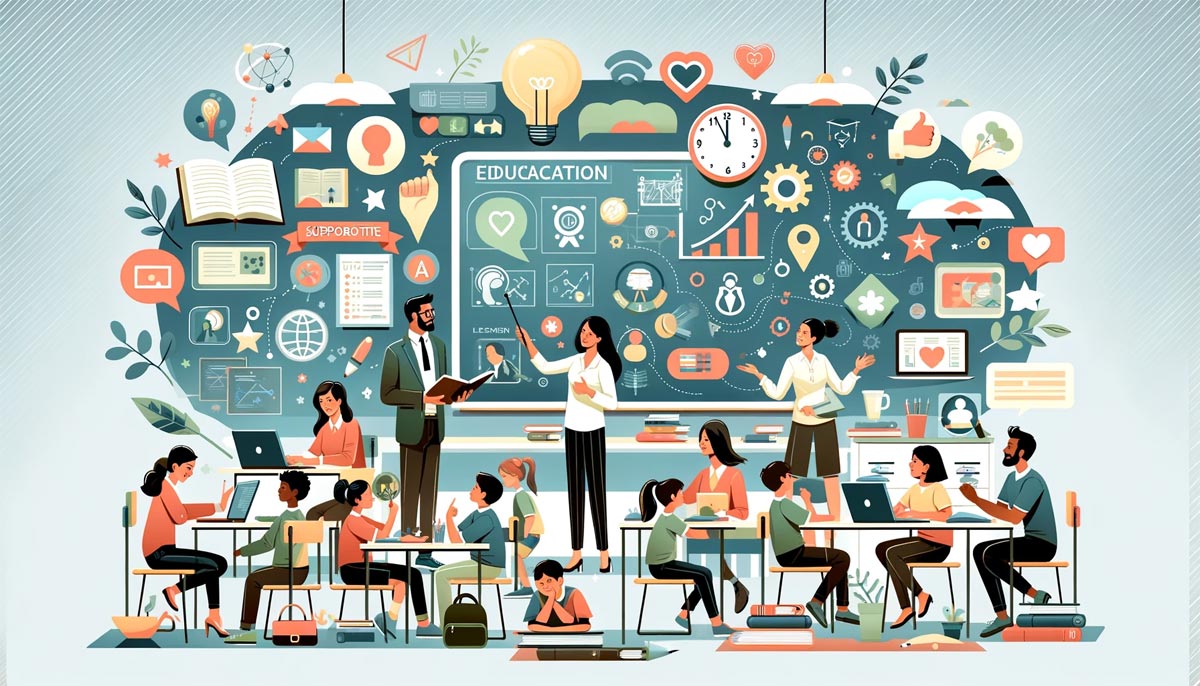
Enhancing Learning: Strategies for Education-Friendly Behavior
In today's dynamic educational environment, fostering a supportive learning atmosphere is crucial for achieving positive educational outcomes. This comprehensive guide delves into effective strategies for educators, parents, and students to cultivate behaviors and practices that promote a conducive learning environment. By integrating educational practices, learning strategies, and behavioral support, we can pave the way for enhanced academic performance and overall student well-being.
Understanding Education-Friendly Behavior
Education-friendly behavior encompasses actions and attitudes that contribute to a positive and supportive learning environment. These behaviors are essential for the academic and personal growth of students. They include active engagement in the classroom, positive student-teacher interactions, and the encouragement of a growth mindset among learners.
For Educators: Encouraging Classroom Engagement
Educators play a pivotal role in shaping the learning atmosphere. Effective classroom engagement techniques are foundational to stimulating interest and active participation among students. Here are strategies educators can employ:
- Active Learning Techniques: Incorporate group discussions, projects, and interactive activities that encourage students to actively participate and think critically.
- Positive Feedback Loop: Establish a system of constructive feedback, recognizing students' efforts and achievements, to boost their confidence and motivation.
- Personalized Learning: Tailor teaching methodologies to accommodate diverse learning styles and needs, enhancing learning experiences for all students.
For Parents: Boosting Involvement in Education
Parental involvement is a key component of a supportive learning environment. Engaged parents can significantly influence their children's educational journey through:
- Home Learning Environment: Create a dedicated, distraction-free space for studying and homework to foster concentration and effective learning.
- Open Communication: Maintain regular communication with educators to stay informed about your child's progress and challenges, enabling timely support and intervention.
- Encouragement and Support: Motivate your child by showing interest in their academic activities and celebrating their successes, thereby reinforcing the value of education.
For Students: Enhancing Self-Motivation
Students' attitudes towards learning greatly affect their academic success. Implementing student motivation strategies can lead to improved engagement and performance:
- Goal Setting: Encourage students to set realistic and achievable learning goals, providing them with a sense of direction and purpose.
- Time Management: Teach students effective time management techniques, enabling them to balance academic responsibilities with extracurricular activities.
- Self-Assessment: Promote self-reflection, allowing students to recognize their strengths and areas for improvement, fostering a proactive approach to learning.
Educational Practices for a Supportive Learning Environment
Adopting innovative educational practices and learning strategies can significantly enhance the quality of education. Here are key approaches to consider:
- Collaborative Learning: Facilitate group work and collaborative projects to build teamwork skills and enhance knowledge sharing among students.
- Inclusive Education: Ensure that educational opportunities are accessible to all students, including those with disabilities, to promote equity in learning.
- Continuous Professional Development: Encourage educators to engage in lifelong learning and professional development to stay updated with the latest teaching methodologies and technologies.
The Role of Behavioral Support in Education
Behavioral support in education involves strategies to address and mitigate behavioral challenges that hinder learning. This includes:
- Positive Behavioral Interventions and Supports (PBIS): Implement a framework for creating behavioral expectations and teaching students the skills to meet them.
- Conflict Resolution: Equip students with conflict resolution skills to manage disputes constructively, maintaining a peaceful learning environment.
- Emotional Support: Provide emotional support and counseling services to address students' mental health needs, ensuring a supportive atmosphere conducive to learning.
Leveraging Technology for Learning Enhancement
Technology plays a significant role in modern education, offering tools and resources for learning enhancement. Incorporating educational technology can:
- Facilitate Access to Resources: Utilize digital libraries and online platforms to provide students with a wealth of information and learning materials.
- Enhance Interactive Learning: Employ interactive whiteboards, educational apps, and virtual reality to make learning more engaging and immersive.
- Support Distance Learning: Enable remote learning opportunities through video conferencing and online courses, making education accessible regardless of location.
Conclusion
Creating an education-friendly environment requires a collaborative effort among educators, parents, and students. By embracing effective educational practices, learning strategies, and behavioral support, we can foster a nurturing atmosphere that encourages academic excellence and personal growth. It's crucial to continually adapt and refine these strategies to meet the evolving needs of the educational landscape. Engaging in this ongoing process not only enhances learning outcomes but also prepares students for successful futures in an increasingly complex world.
Remember, the journey towards education-friendly behavior is a collective one, where every stakeholder has a vital role to play. By implementing the strategies outlined in this guide, we can work together to build supportive educational environments that empower students to reach their full potential.
Education Life Skills Students




